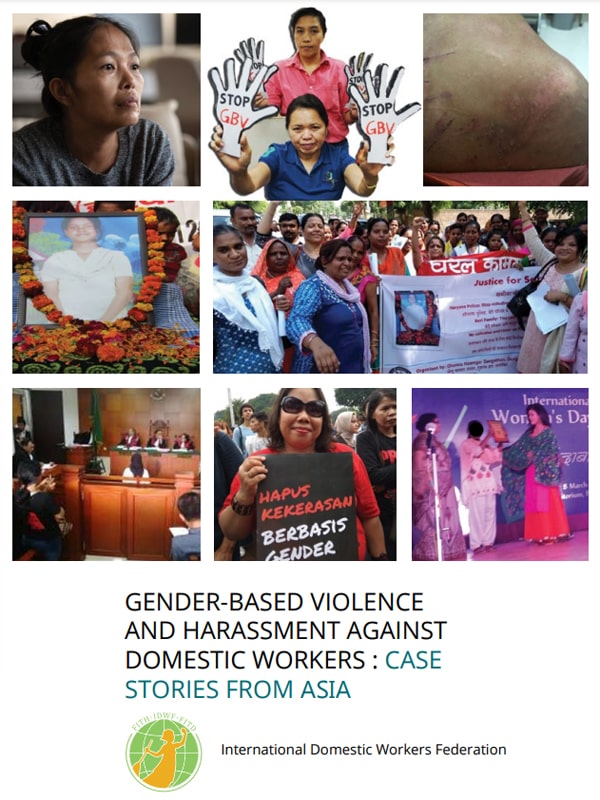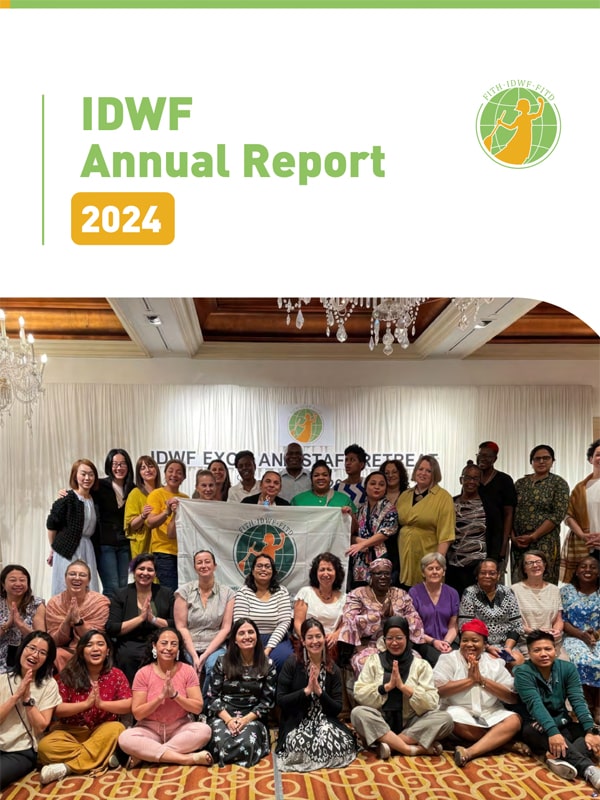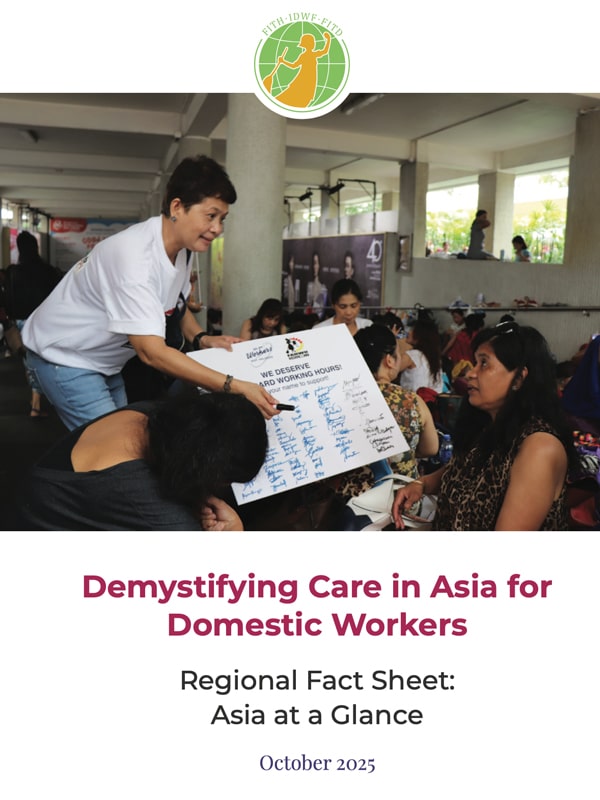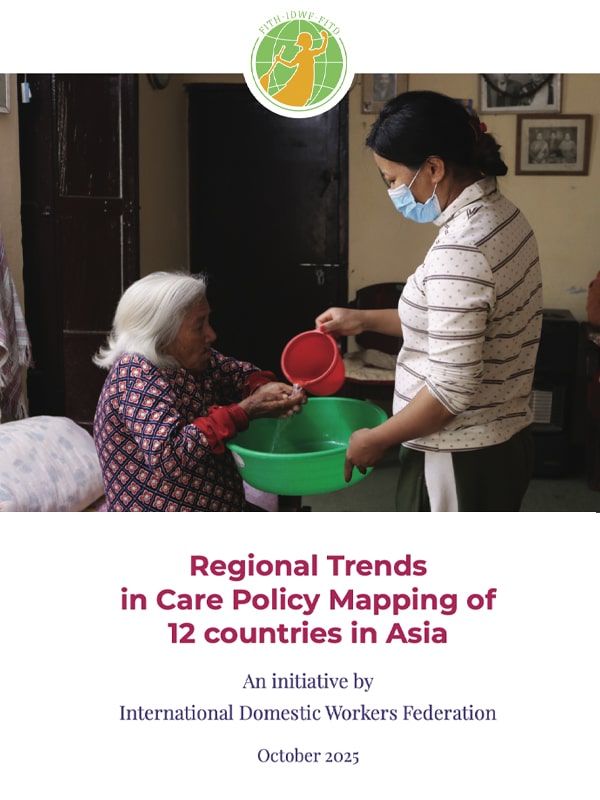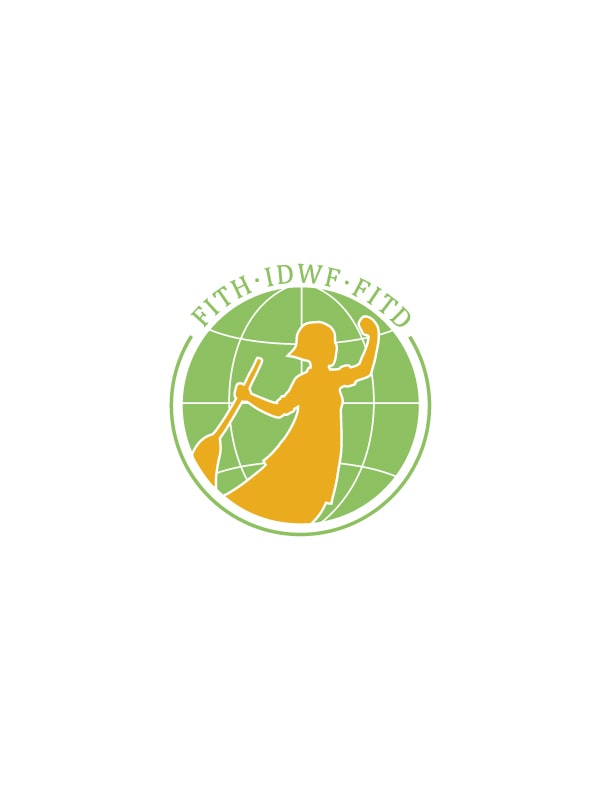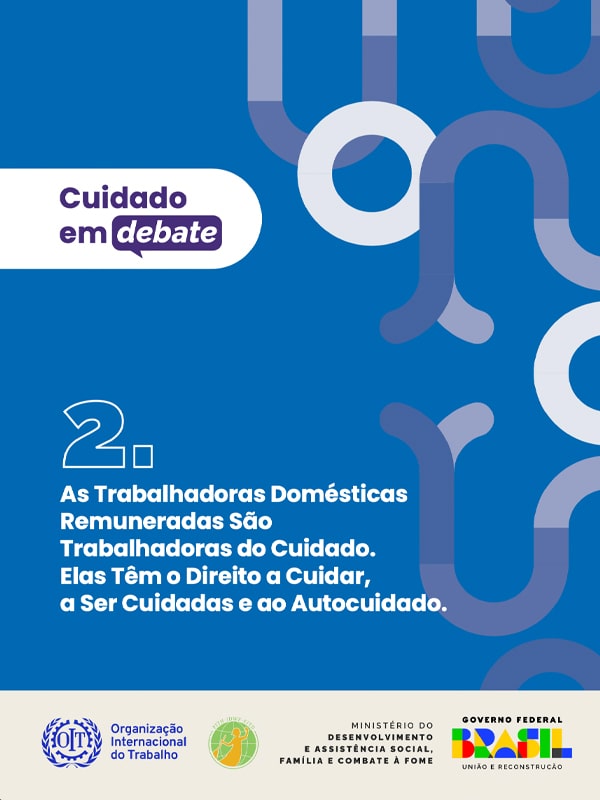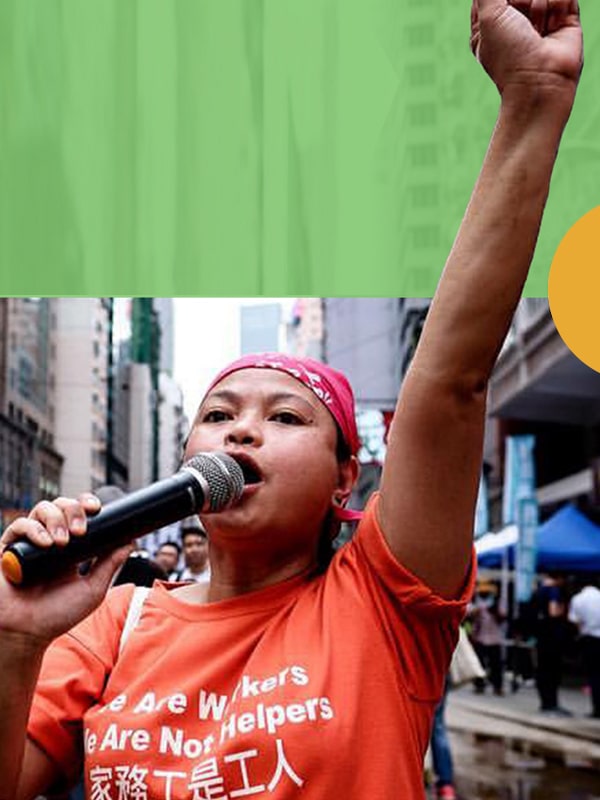“Gender-based violence has been a silent killer of many domestic workers around the world as we are scared to speak out, afraid of losing our jobs. We need to lift our voices to stop this abuse.” – Myrtle Witbooi, President, IDWF.
In early 2019, the IDWF invited its DWO affiliates to narrate a case story on violence against domestic workers to increase the visibility of the gender-based violence and harassment confronting domestic workers in Asia, and to share how these DWOs helped the victims of such violence. Eight cases are narrated in the casebook, including one from the Sandigan Domestic Workers Association in Kuwait to add to the dimension of physical violence and harassment.
The IDWF has compiled these case stories with a view to:
- Identifying the different forms of gender-based violence and harassment against domestic workers.
- Deepening the understanding on why domestic workers are vulnerable to gender-based violence and harassment.
- Finding out about the difficulties and successful strategies in preventing and combating violence and harassment against domestic workers.
All case stories describe real-life situations. They tell the story of six domestic workers from Bangladesh, Cambodia, India, Indonesia, and the Philippines who faced violence in their own country, and two Filipina migrant domestic workers who were subjected to abuse in Hong Kong and Kuwait, respectively. Most of the stories showcase the most intolerable ‘worst case’ scenarios and the crippling effects of abuse on victims, but also their courage and resilience. They describe how laws apply to combat such violence, the barriers the DWOs had to overcome, and the strategies and practical measures they used to successfully act against such abuses.
The challenges are huge, as comprehensive laws and enabling mechanisms do not exist in the vast majority of countries. In the few where they do, there continues to be a lack of public awareness and institutional support for effective implementation due to gender and many other biases against domestic workers. To prevent harassment and violence from happening and to seek justice for the victims, the DWOs taking part in this report stressed the need for: information and communication, networking and organizing, support from public institutions and civil society, dedicated and persistent DWOs and their allies, and adequate financing.
Download here

